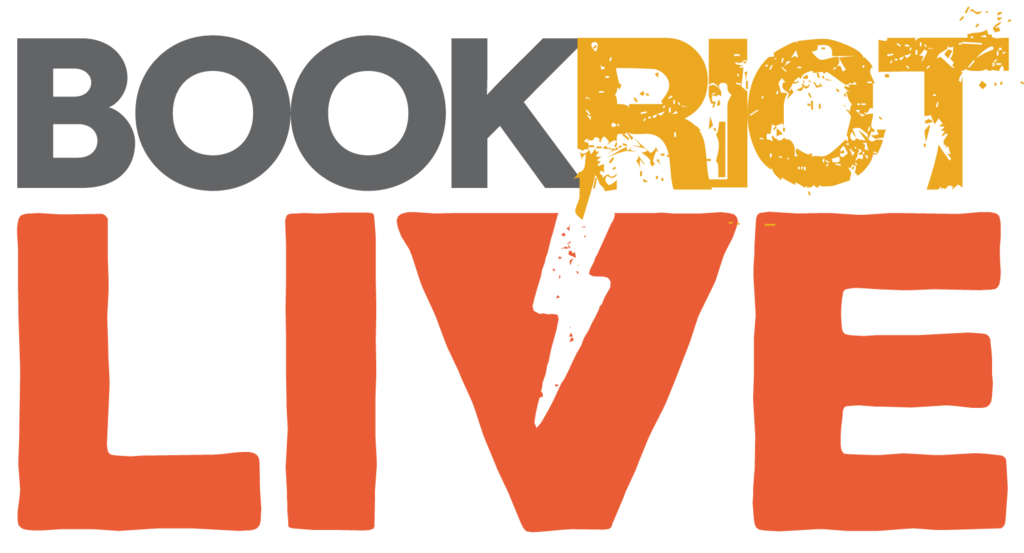
Women Aren’t Aliens (and Other Thoughts on the Andrew Smith Controversy)
The bookish internet blew up this week over the issue of sexism, female characters, and YA. And it all started when author Andrew Smith talked to Vice.
Smith is an acclaimed and hugely popular author of books that depict complex, interesting teenage boys. But by many accounts, his female characters are just the opposite: one-dimensional and stereotypical (where they aren’t just absent). So when Smith sat down with Vice, the interviewer asked him about the dearth of girls and women in his books. And what he said made a lot of people angry:
Q: On the flip side, it sometimes seems like there isn’t much of a way into your books for female readers. Where are all the women in your work?
And that, in turn, prompted a furious backlash of people defending Smith and dismissing his critics as quick-to-attack and fueled by faux outrage.
But I want talk a bit, here, about why genuine outrage–born out of genuine frustration–makes sense here. I want to talk about where that anger came from and why it matters.
I honestly hadn’t heard much about Smith before this erupted. So this post isn’t–as the issue really isn’t, fundamentally–about how good his books are (I hear they’re great) or whether he’s a nice guy deep down (he may very well be). Really, when it comes down to it, this isn’t even about Smith. Instead, it’s about the worldview from which his words emerged and to which too many subscribe.
Here are just two of my problems with what Smith said and what it says about a certain, distressingly common way of thinking about the world and the women who inhabit it:
1. Women are not aliens.
The idea that women are foreign, bizarre, alien isn’t something Smith invented. It’s an old trope that’s been powering terrible stand-up and awful sitcoms since the beginning of time. But it’s one he draws on when he talks about “all things woman and female” as unknown (and possibly unknowable). It’s old, and it’s tired, and it’s at the heart of the worldview to which I’m objecting here.
It’s a problem because it assumes that men and masculinity are the default settings for humanity. That men are “normal” and have no obligation to explore or understand the experiences of those weird women over there with the weird ovaries. It’s what makes it possible for people to think about there being “books,” on the one hand, and “girl books” on the other. It’s what makes it possible for school administrators to allow only girls to attend a presentation by author Shannon Hale. Basically, as Tessa Gratton writes in a great post on this controversy: “The interpretation is that women are less than human, or at the very least, inherently different from men. That is one of the oldest sexist arguments in the entire world.”
It’s a problem because it assumes that the only reason men might be interested in understanding women’s experiences is sex or its sometimes-product (female children). It says that a woman’s value as a person (and especially a person worth getting to know) is all about her proximity and connections to a man. Women can be understood readily as men’s daughters, men’s wives, men’s mothers, but only with more difficulty as people of their own with lives and interests and needs and experiences and desires of their own.
It’s a problem because it reproduces and reinforces a binary approach to gender, where men and women (and masculinity and femininity) are distinct, immutably separate categories. And that is, gloriously, not the world we live in.
“All things woman and female” are not mysterious, obscure, or alien. They are part of our world–the world in which we write and we read. And I’m comfortable with wanting authors, who are usually trying to capture and communicate something about the world around them (even if they add giant grasshoppers), to take seriously the lives of literally 51% of the people around them.
2. Saying “I’m trying” is not the same as trying.
This has been a major issue in this discussion. Many defending Smith have pointed to the last sentence of the passage I quoted at the top (“I’m trying to be better though”) as evidence of Smith’s honesty and as evidence that his critics are mean-spirited outrage-addicts. According to this worldview, “I’m trying” is sufficient. Acknowledging one’s privilege stands in for actually doing something about it.
That’s a problem because it lets those with privilege off the hook. It makes living in the world seem easy–but it isn’t easy. It makes seeking justice seem easy–but it isn’t easy. It takes work beyond saying you’re doing the work. Maybe that means reading more books by and about women, or writing rich female characters and then having them critiqued by friends and colleagues, or listening carefully and thoughtfully to the women around you (and there are women around you). A number of those defending Smith insisted that he was being honest in his evaluation of his shortcomings, and that that honesty bought him some slack. But the real, difficult work of honesty is in what comes after you realize something is wrong. It comes when you move from saying truth to doing truth.
It’s also a problem because it makes dismissing reasonable criticism easy. If someone is trying, it’s just rude to criticize. It’s piling on. It’s vilification. It’s unfair. But it makes sense to evaluate people not on vague platitudes but on what they’ve actually done (and that’s especially true for a prolific author). Smith is at nine-ish books into his career. He’s a grown-up, a wildly successful author with a great deal of talent and experience. The training wheels should have come off a long time ago, and keeping them on doesn’t help. Personal attacks aren’t cool, of course. But calling someone on participating in and perpetuating a messed-up worldview isn’t attacking them. It’s challenging a status quo that has, through the awful magic of repetition, achieved the false appearance of truth.
—
Like I said, this isn’t really about Smith. It’s not that he’s some spectacularly, uniquely awful monster. In fact, the problem is quite the opposite: it’s that this whole thing is totally normal. That’s because it draws on a worldview that is widely held, one that has long shaped the publishing industry like it has many other parts of our world. We’ve seen it before. We’ll likely see it again. But in the meantime, in frustration (and, yes, outrage) I’m going to continue to talk about why that’s a problem.
____________________

















